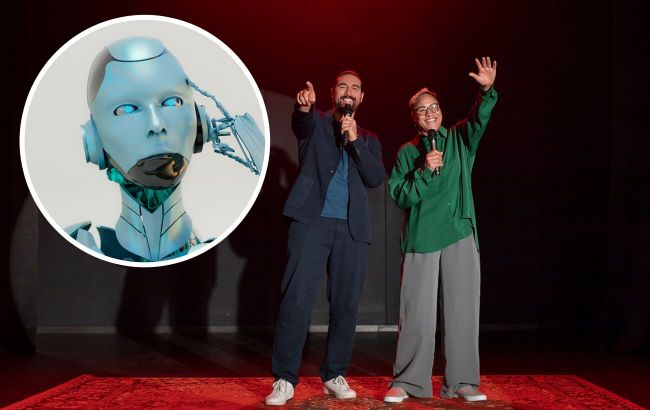Is AI good at writing jokes for stand-up? Study reveals impressive findings
 Researchers found out whether AI can write a good comedy text (RBC-Ukraine collage)
Researchers found out whether AI can write a good comedy text (RBC-Ukraine collage)
Google DeepMind researchers studied the experience of professional stand-up comedians who use artificial intelligence to write their jokes. It turned out that AI does not have a great sense of humor, as its jokes are soft, formulaic, and boring, according to MIT Technology Review.
A group led by Piotr Mirowski, who sometimes acts as an improv comedian himself, used a combination of surveys and focus groups to determine how useful AI is for various tasks.
It turned out that popular AI models from OpenAl and Google are good at simple tasks. For example, structuring a monologue or creating a rough draft. But it is difficult to create a story that would be original and funny.
The researchers offered professional comedians who have already used AI for their work to use large language models (LLMs) such as ChatGPT or Google Gemini to create a story that they would be comfortable presenting in a comedy context. For example, they could use this text to create new jokes or to rework existing content.
The results impressed the researchers and were mixed. Comedians admitted that they like to use AI to write jokes, but they are not enthusiastic about this text.
Some of the participants note that AI can be useful for work because it makes notes fast. One of the comedians called such a text "a vomit draft that will have to be reworked and improved." Many of the participants in the study noted the AI's ability to create the structure of a comedy sketch with the ability to add details.
Most of the comedy texts created by AI were described by the study participants as bland, formulaic, and boring. And the quality of humor left much to be desired. There was also an opinion that the amount of effort was simply not worth the result.
"No matter how much I prompt, it's a very limited, linear approach to comedy," said one comedian.
But the inability of AI to generate quality humor is not really surprising. After all, OpenAl and Google use the same security filters to prevent chatbots from reacting harshly or racist. Offensive, sex jokes, and black humor are also banned. The AI relies on safe sources - a huge number of documents, books, blog posts, and other types of online data that they have been trained to work on.
"Comedy or any other good piece of writing uses long arcs to get back to a topic or surprise the audience. Large language models have problems with that because they are built to predict one word at a time. In my research, I've often tried to encourage AI to be funny, unexpected, interesting, or creative, but it just doesn't work," explained Computer Science researcher Tuhin Chakrabarty from Columbia University.
Check out also 6 reasons not to trust AI completely.

